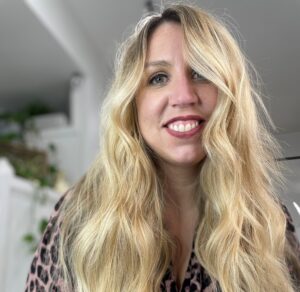Celebrating Neurodiversity: Embracing Differences, Empowering Minds
March 18 to 24 is Neurodiversity Celebration Week, a time dedicated to honouring the unique strengths and perspectives of individuals with neurological differences. Communities around the world come together during this week to advocate for inclusivity, understanding, and acceptance.
One of the primary goals of Neurodiversity Celebration Week is to advocate for the creation of inclusive environments in schools, workplaces, and communities. This work is at the heart of what Kinark Child and Family Services does.
Kinark has worked in partnership with children and youth with autism, and their families for more than 20 years. Our support staff have helped thousands of children transition effectively into the school environment as well as supported youth with their transition into adulthood. This Neurodiversity Celebration Week, we are highlighting the contributions and talents of neurodiverse individuals, so we can inspire others to embrace their own differences.
Amanda Modrovsky is a neurodivergent Clinical Supervisor at Kinark Child and Family Services. Amanda recently shared some insightful dialogue with us on her personal experiences navigating the workforce and supporting neurodiverse individuals.
What does Neurodiversity Celebration Week mean to you personally?
Neurodiversity Celebration Week holds a significant place in raising awareness and initiating conversations about neurodiversity. While I appreciate the focus and acknowledgment that Neurodiversity Celebration Week brings to the forefront, I also acknowledge that true acceptance and understanding require ongoing education and engagement. Breaking down barriers and misconceptions surrounding neurodiversity necessitates a deeper, more widespread cultural shift towards inclusivity and empathy. Rather than emphasizing solely our differences, I believe it is crucial to highlight our shared humanity and common experiences. By focusing on our similarities and fostering a sense of unity, we can cultivate an environment of acceptance and support that transcends divisions based on neurodiversity or other characteristics.
How has your experience with neurodiversity influenced your approach to your work?
My experience with neurodiversity has profoundly shaped my approach to my work, instilling in me a deep belief that every brain type is valuable and deserving of respect and support. I hold the conviction that equity must be extended to all individuals, irrespective of factors such as race, class, gender, religion, or neurodiversity status.
Being neurodivergent myself has endowed me with a unique perspective and a heightened empathy for the experiences of my clients. This understanding allows me to adopt a client-centered mentality in my practice, where I prioritize meeting individuals and families where they are at, tailoring my approach to their specific needs and preferences.
In what ways do you think Neurodiversity Celebration Week can help raise awareness and promote acceptance?
Neurodiversity Celebration Week serves as a crucial platform for raising awareness and promoting acceptance of neurodiversity by bringing the spotlight onto various neurodivergent experiences, perspectives, and strengths. The very acknowledgment and discussion of neurodiversity fostered during this dedicated week contribute significantly to increasing understanding and empathy towards individuals with diverse neurological profiles.
By shedding light on the unique abilities and perspectives of neurodivergent individuals, this awareness-building effort helps to break down stigmas and barriers, ultimately leading to greater acceptance and inclusion. Moving forward, it is essential to continue advocating for a shift towards recognizing and celebrating the exceptionalities of neurodivergent individuals, fostering a more inclusive and supportive environment that values neurodiversity in all its richness and diversity.
How do you believe organizations can better support neurodiverse staff members throughout the year, beyond this dedicated week?
Organizations can better champion neurodiversity by fostering an inclusive and accommodating work environment that recognizes, respects, and supports the unique needs and strengths of neurodivergent employees.
Acceptance plays a pivotal role in creating a supportive workplace culture for neurodivergent individuals. Recognizing that the workstyles and preferences of neurodivergent staff may differ from traditional norms is key in enabling them to thrive. Organizations can also enhance support by improving mental health resources, such as offering comprehensive insurance coverage for mental health services.
Moreover, flexibility in work arrangements is vital in accommodating the diverse needs of neurodivergent employees. Providing options for flexible working hours, remote work, or personalized job arrangements can empower neurodivergent individuals to optimize their productivity while maintaining a healthy work-life balance.
Lastly, ongoing education and awareness initiatives for all staff on neurodiversity and acceptance can foster a more inclusive and understanding workplace culture. By promoting empathy, respect, and appreciation for neurodiversity, organizations can cultivate a harmonious work environment that celebrates the unique contributions of all employees, including those who are neurodivergent.
Follow us on Instagram @KinarkAutismServices for more content on Neurodiversity Celebration Week, and share this blog to help spread neurodiversity awareness.

Amanda Modrovsky is a neurodivergent BCBA with over 14 years of experience working with children, youth and adults with autism. She utilizes both formal and informal research about neurodiversity to create and teach the best practices to other clinicians about neuro-affirming care, inclusivity, and intersectionality.


Recent Comments